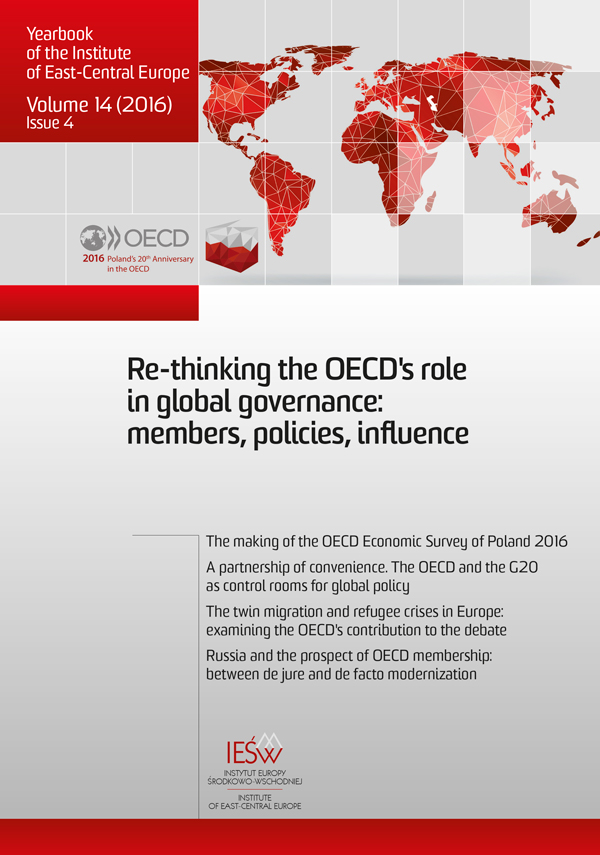Russia and the prospect of OECD membership: between de jure and de facto modernization
Russia and the prospect of OECD membership: between de jure and de facto modernization
Author(s): Magdalena LachowiczSubject(s): National Economy, Economic policy
Published by: Instytut Europy Środkowej
Keywords: OECD; Russian Federation; international cooperation; perestroika; modernization
Summary/Abstract: Nearly 20 years into the process, the membership negotiations between the Russian Federation (RF) and the OECD were postponed in March 2014. Whereas, unofficially, the annexation of Crimea and the Ukrainian crisis are to be highlighted as the imminent culprits, the analysis of the negotiation process suggests that it was a matter of time for the OECD to suspend the talks. The objective of this paper is to examine that negotiation process as seen from the broader perspective of the attempted socio-economic reforms in the RF. It is argued that the OECD and the membership negotiation process proved very effective in introducing far reaching and comprehensive changes leading to the modernization in specific domains of the regulatory framework in the RF. To a large extent, nevertheless, these changes were not accompanied by corresponding adjustments with regard to the norms, values and principles that define the functioning of the RF. Overall, a case can be made of de jure modernization in RF rather than de facto.
Journal: Rocznik Instytutu Europy Środkowo-Wschodniej
- Issue Year: 14/2016
- Issue No: 4
- Page Range: 151-172
- Page Count: 22
- Language: English

